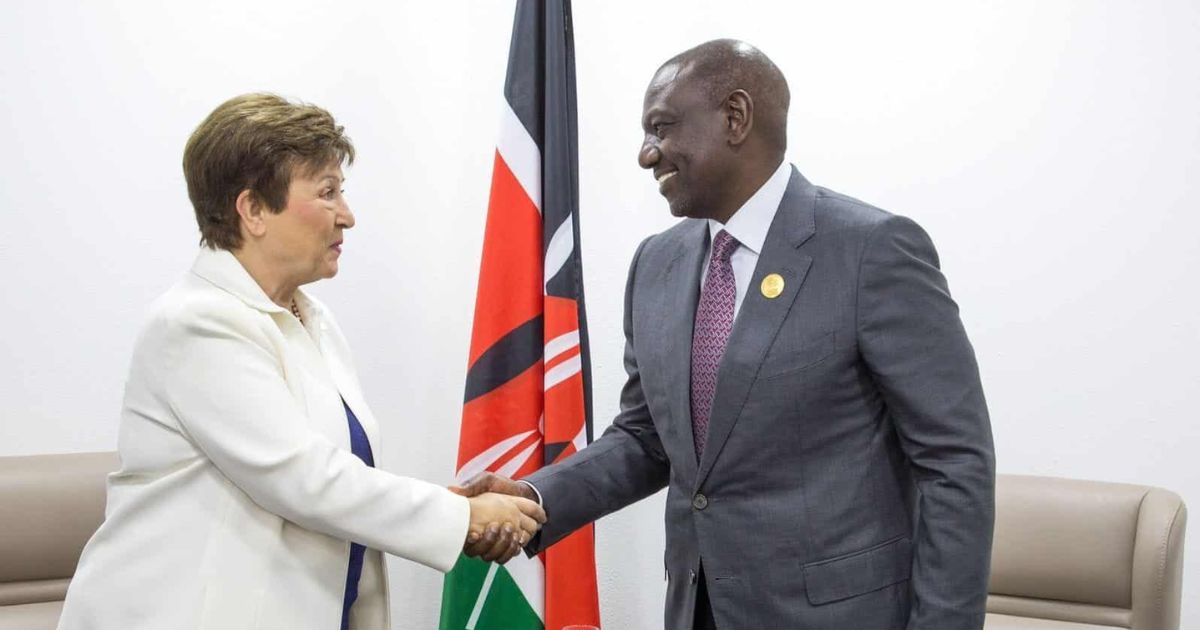
Hello and welcome to the Money News Roundup Newsletter, where we cover IMF’s influence in the conversion of dollar dominated SGR loans. We also cover why over 2,000 primary schools face closure.
Kenya’s decision to convert its Standard Gauge Railway (SGR) loans from US dollars to Chinese yuan was influenced by pressure from the World Bank and IMF, according to President William Ruto’s economic adviser, David Ndii.
Speaking to the Business Daily, he revealed that the lenders were concerned that their dollar loans, intended to support Kenya’s budget and development, were instead being used to repay China.
Last month, the Treasury converted three China Exim Bank loans into yuan, a move expected to save Kenya about $215 million annually in interest.
The shift lowers interest costs from more than 6% on dollar-denominated loans to about 3% on yuan-based terms. Kenya borrowed $5.08 billion for the SGR, and repays interest every January and July.
Ndii said Western lenders questioned why they should inject funds into Kenya only for China to benefit. Over the past five years, China’s outstanding loan portfolio to Kenya has dropped 18.8% to Ksh620.3 billion, while IMF lending surged 164.2% to Ksh477.2 billion.
World Bank debt has also risen sharply to Ksh1.66 trillion.
Classified as high risk of debt distress, Kenya has intensified debt management measures, including restructuring, early Eurobond buybacks, and shifting towards diversified currency borrowing.
The yuan swap is part of efforts to reduce dollar exposure, currently 52% of external debt, and ease repayment pressure.
2,145 public primary schools risk closure after failing to meet the minimum enrolment threshold of 45 learners.
A nationwide audit has also confirmed that some secondary schools did not meet the threshold.
As reported by Nation, 10 schools have already been shut down after being found to have no learners, exposing gaps in school oversight and misuse of capitation funds.
Education CS Julius Ogamba said the audit was triggered by reports that some non-existent schools had been receiving government funding. He said no money will be released to unverified schools.
The closed schools that have been closed because they lack learners include Kiria Secondary (Nyandarua), Dr Machage Moheto (Migori), Ragia Forest High (Kiambu), Friends Bulovi (Kakamega), Ngamba Secondary (Murang’a), Sintakara Secondary (Narok), Maji Mazuri Mixed (Baringo) and Fr. Leo Staples Girls (West Pokot).
Ogamba added that the ministry is tightening data verification to stop capitation losses and ensure only genuine schools remain operational.
The government has deregistered 680 recruitment agencies for violating labour laws in a nationwide crackdown on fraudulent overseas job schemes.
Labour CS Alfred Mutua said investigations revealed many agencies were operating without valid licences, putting Kenyans at risk of financial loss and exploitation.
The move follows a viral July video showing youths protesting after being conned.
As reported in the Eastleigh Voice, at least 100 complaints from 15 counties show victims lost over Ksh.17.3 million to fake promises of jobs in Canada, Qatar, Australia, and Germany.
Mutua warned that rogue agents will face arrest and urged Kenyans to only use NEA-accredited agencies. A one-stop centre has been set up to handle complaints, as the government strengthens safe, structured labour migration.
Safaricom’s Fuliza overdraft service recorded significant growth in the six months to November 2025, with active users rising 22.2% to 9.1 million, up from 7.5 million a year earlier.
New data from the telco’s half-year financial results shows Kenyans borrowed Ksh629.2 billion through Fuliza, a 39.8% increase from Ksh450 billion last year.
As reported by the Business Daily, The average loan size also grew 7.8% from Ksh236.20 to Ksh254.60, reflecting consumers’ growing reliance on short-term digital credit.
Fuliza, launched in 2019 and offered with NCBA and KCB as underwriters, allows customers to complete M-Pesa transactions when their wallet balance is insufficient. A 1% access fee and daily charges of Ksh5–Ksh30 apply. Despite growth, only 17.8% of Safaricom’s 51.12 million active customers use Fuliza.
Meanwhile, M-Shwari’s monthly active users rose 17.6% to 7.9 million, but average loan size fell 9.7% and total disbursements dipped to Ksh48 billion. M-Pesa revenue increased 14% to Ksh88.1 billion.
A credit rating agency is urging the Central Bank of Kenya (CBK) to require commercial banks to publicly disclose the average risk premiums (K) charged on loans under the new credit pricing model.
Augusto & Co says publishing the weighted-average premium—on top of the base lending rate tied to the new Kenya Shilling Overnight Interbank Average (KESONIA)—will help customers compare borrowing costs across banks.
The premium K reflects a bank’s operating costs, expected shareholder returns and customer risk profile.
Augusto’s MD, Yinka Adelekan, noted that the UK, Morocco and South Africa require such disclosures for transparency.
Banks are expected to fully adopt the Kesonia-based pricing model by November 30, with each required to publish average premiums for all loan products. Read more
Join 1.5M Kenyans using Money254 to find better loans, savings accounts, and money tips today.

Money 254 is a new platform focused on helping you make more out of the money you have. We've created a simple, fast and secure way to find and compare financial products that best match your needs. All of the information shown is from products available at established financial institutions that our team of experts has tirelessly collected.

